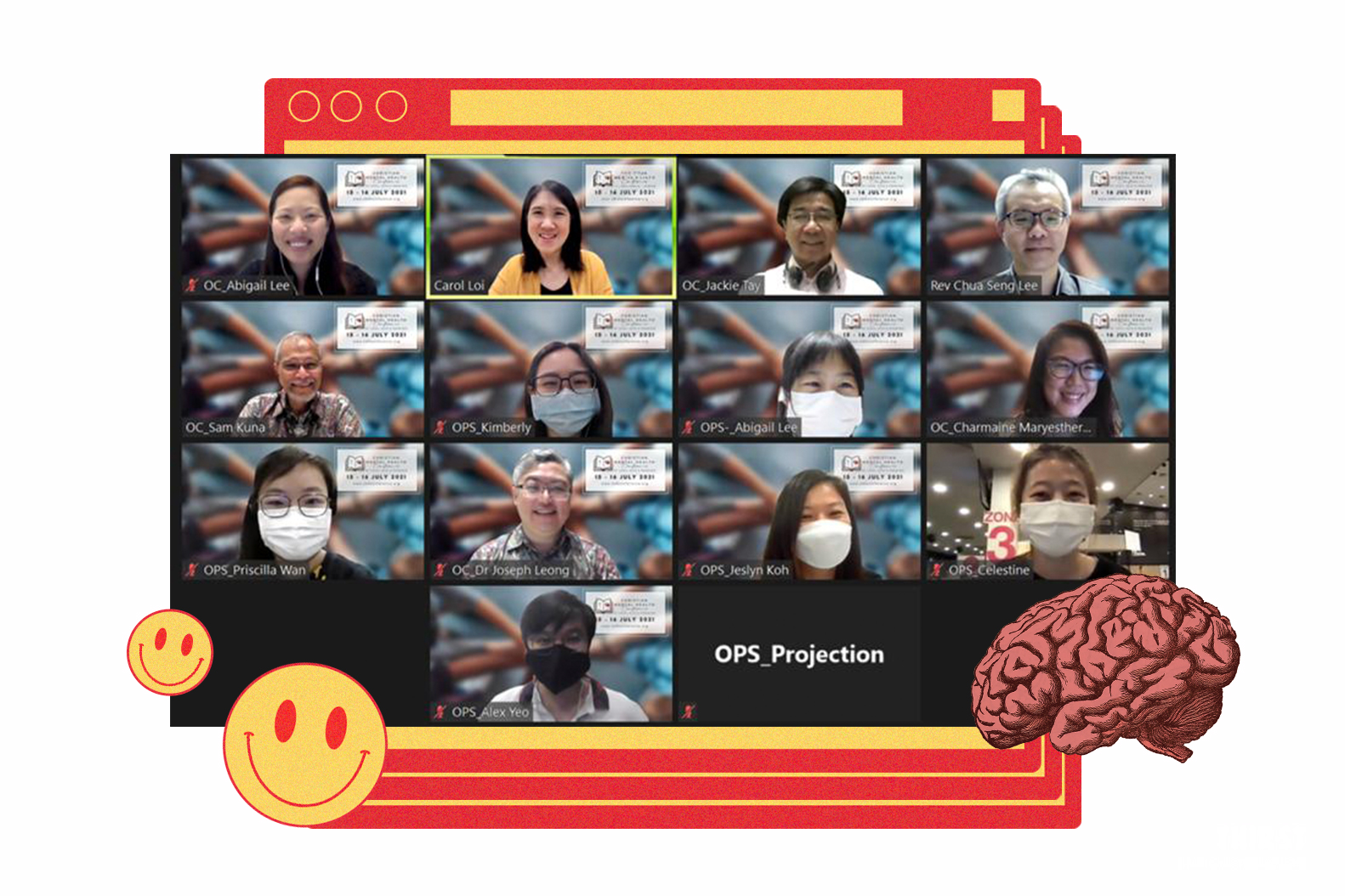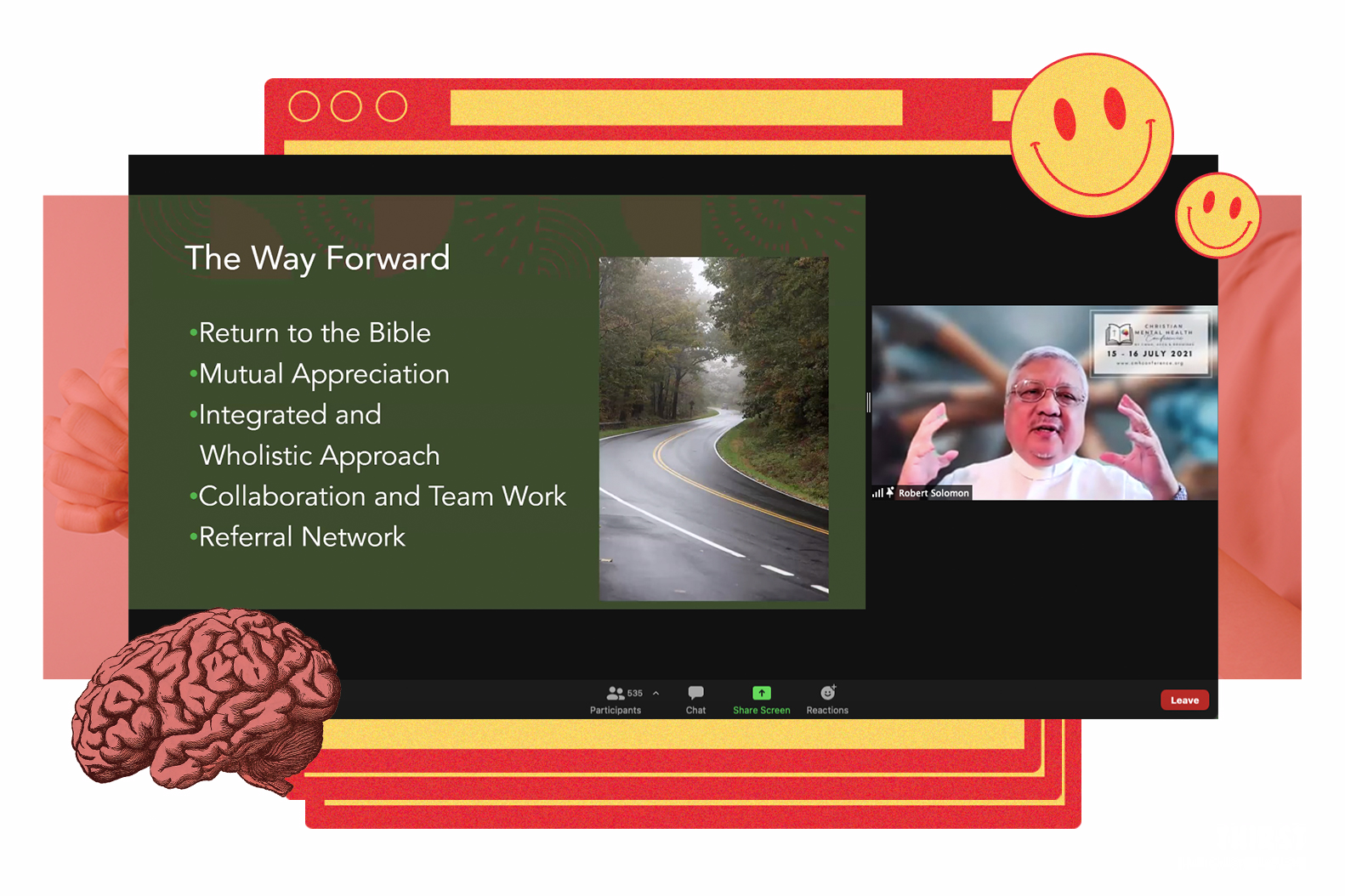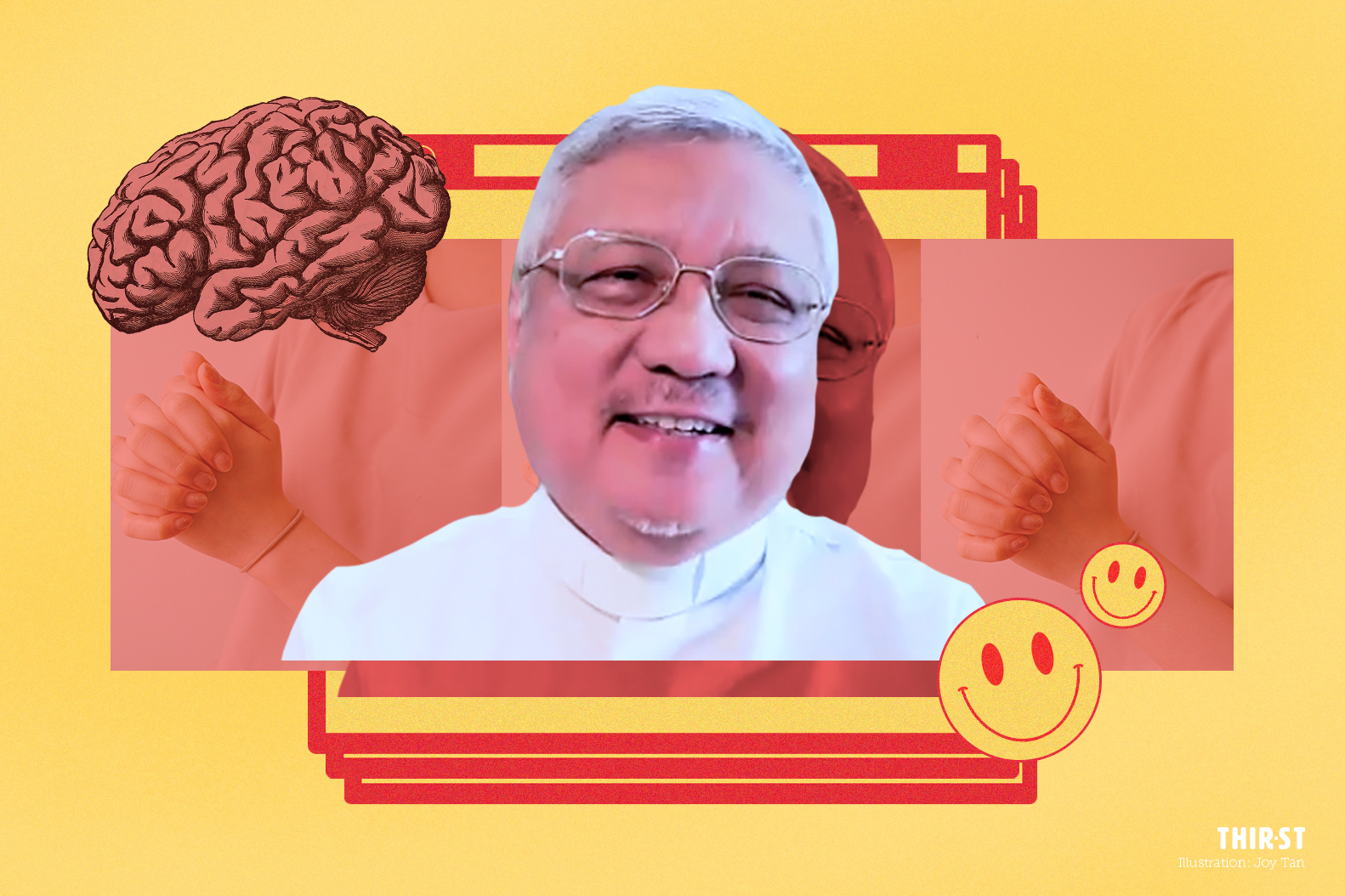How does a lack of faith impact one’s mental health? How can you discern between the work of the devil and mental illness?
Questions like these were explored on the first day of the inaugural Christian Mental Health Conference, which attracted 1,000 Zoom sign-ups over Thursday and Friday (July 15–16, 2021).
Giving the opening address to a virtual room of pastors and mental health practitioners, Dr Robert Solomon, Bishop Emeritus of the Methodist Church in Singapore, started off by explaining why we need to guard against an exclusively clinical or exclusively religious approach when it comes to mental illness.
“There are connections that we need to make while we try to differentiate mental health professions and pastoral care. We should not divide them so much that it’s either this or that,” explained the former medical doctor.
“There are common roots that we must recognise between pastoral care, and psychiatry and mental health professions.”

Sharing that the word “psychiatry” can be traced back to the Medieval Latin word psychiatria, which means “healing of the soul”, Dr Solomon pointed out that the Greek equivalent could help us to understand this better since it is made up of two words: psukhē (soul) and iatreia (healing).
“So etymologically, the psychiatrist is the modern healer of the soul, a function that was performed by the clergy and healers in the church for many centuries,” he said, adding how this evolved as a result of secularisation.
During the period of Enlightenment, the language changed, and there was no longer a focus on the spiritual, Dr Solomon revealed.
Eventually, this gave rise to the professionalisation of caring/healing ministries and the development of helping professions, ranging from general counselling to family therapy.
However, Dr Solomon emphasised that because we are complex beings, it is important to have an integrated and holistic approach to mental health.
WHAT’S THE RELATIONSHIP BETWEEN FAITH & MENTAL HEALTH?
Touching on the role of faith in mental wellness during the Q&A, Dr Solomon said it’s crucial to first define what we mean by “faith”.
“Faith is trust in a person – the person of Christ,” he elaborated.
“If you have that, I think your emotional life will be more stable, your mental life will be more stable, because Scripture does suggest that we can bring our thoughts under control by the Holy Spirit.”
After all, we’re talking about having trust in Jesus, the one who commands the storm to be still (Matthew 8:23–27, Mark 4:35–41, Luke 8:22–25).
“So of course, the lack of faith, in that sense, can lead to dysfunction, emotional turmoil, doubt, anxiety and so on,” Dr Solomon added.

But Dr Solomon also warned that we need to be careful that, when we tell someone who is struggling with mental health they need more faith, we are not referring to faith of the “name it and claim it” sort, which is often a shallow and self-centred view of faith.
Referring to the same passage of Jesus calming the storm, he said that although Jesus later chided the disciples for their little faith, the Lord was referring to their lack of trust in His presence, rather than His power.
“He is in the boat. And if He is in the boat, why are they panicking?” asked Dr Solomon.
‘It’s not just my power; it’s my presence.”
“So He’s basically teaching them, not so much about His power — His power is always there — but I think He was so disappointed that He had to be woken up and made to show His power, so that they can feel safer.
“He wanted them to learn a deeper lesson: ‘It’s not just my power; it’s my presence. Because you have my presence, you can rest in me. No matter how big the storm is, you can trust me.’
“So I think it was that aspect of faith that Jesus was disappointed with not seeing in His disciples.”
At the end of the day, faith means having trust in God, emphasised Dr Solomon. And when someone is under pressure, it is that relationship with God that sustains the person.
HOW CAN YOU TELL WHEN AN ILLNESS IS DEMONIC?
Responding to another question on how one can differentiate between demon possession and mental illness, Dr Solomon was again quick to start with definitions.
He clarified that what we understand as “demon possession” is better translated as “demonised” if you study its original Greek word.
Having done his doctoral research in the area of demon possession and published a book on it, Dr Solomon shares the beliefs of the late Anglican minister John Richards, who argued that we should look at demonic activity in our lives as a whole spectrum.
“The devil knows how to draw our desires towards sin, so it starts with temptation — like the way he tempted the Lord Jesus — right up to possession, which is complete control,” he explained.
From Dr Solomon’s point of view, the idea of demon possession, where the devil has 100 per cent influence or control over a person, is “clinically, very rare”.
However, if you “catastrophise demonic activity to just possession”, then you would be dismissing 99 per cent of the devil’s activity in a person’s life, he cautioned.
“The devil likes to work under camouflage,” Dr Solomon pointed out.
“And I would think that it’s not so neat because we are embodied beings. It’s very difficult to cut and dissect, and say this is the devil, this is the psyche, this is the society, this is the body. It often works together; it reinforces each other.”
That is why it is important for us to be open to a “this and that” approach instead of “this or that”, he remarked.
“If you say, either this or that, we can never work together. So the guy has a psychiatric problem, send him to the psychiatrist, that’s it. He will solve it.
“If it’s a spiritual problem, send him to the pastor who (does) deliverance ministry, and that’s it. We’ll never collaborate.”
WHERE DO WE GO FROM HERE?
Sharing his thoughts on how we can bridge the Church and the Clinic, Dr Solomon gave a few suggestions.

1. Return to the Bible
“There needs to be a return to the confidence of the biblical worldview, and biblical diagnosis and prescription for the human condition,” he said.
In fact, Dr Solomon earlier shared that it was an American psychiatrist Karl Menninger, author of Whatever Became of Sin?, that appealed to pastors not to abandon their religious language of sin and redemption in their eagerness to embrace psychological language and ideas.
“We must understand the authority of Scripture, and its relevance for today and to our human condition. God has revealed things that we would not otherwise know. We can’t find it in nature; we find it in Scripture,” he said.
“And, of course centrally, the Bible speaks about God and His grace, which is so important to appreciate, understand and apply in our pastoral or healing craft. Because without God’s help and His grace, we will not make any major headway in bringing healing to people.”
2. Mutual appreciation of science and religion
Encouraging pastors to appreciate areas of knowledge such as medicine, psychology and sociology, Dr Solomon made a similar call to mental health professionals.
He urged them to appreciate Christian theology and pastoral care, as well as the role of sacraments, worship and Christian community in the healing process.
“Science and religion can always work together because if you believe that science is a study of nature, including human nature, then surely we can work together in this aspect,” he said.
3. Integrated and holistic approach to helping people
Using the analogy of playing the piano, Dr Solomon said that if the music comes out bad, you’d need to examine the problem from different angles.
Is it because the piano strings need tuning or changing? Are there mistakes in the piano score? Or could it be that the pianist is not a skilled player?
It would then take different specialists – in piano playing, strings or scores – to work together to try and resolve the problem.
Recognising how Christians in various helping professions are all interconnected, Dr Solomon said that a conference like this is a good platform for different members of Christ’s body to see how they can collaborate and be part of a network that brings healing.
He said: “I think this is how we arrive at an integrated and holistic approach. We need one another, and we have to try to work together.”
- What does having faith in the person of Christ mean to you?
- Do you recognise His presence in your life? On the flip side, are you aware of what the devil might be trying to do in your life?
- Are there areas of your life where you need healing in?









